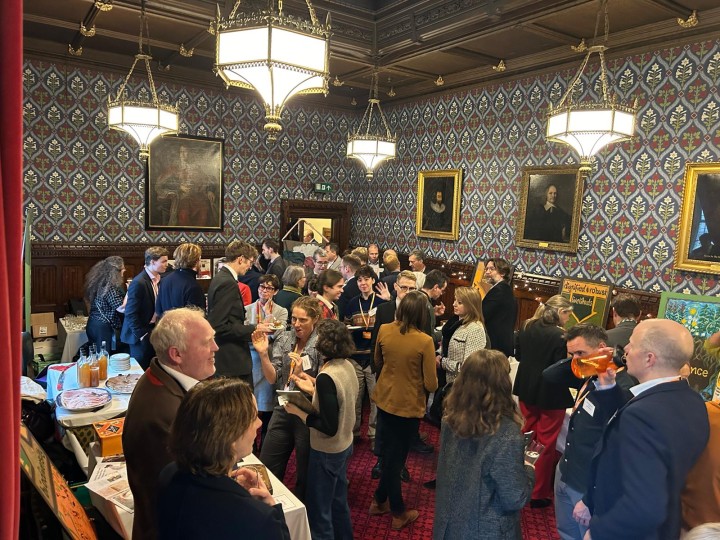MPs gathered to learn directly from farmers and landworkers how nature-friendly approaches to agriculture can help to tackle pressing national challenges at an event which the NFFN helped to organise.
MPs were given an insight into how supporting nature-friendly approaches to farming could play a vital role in tackling major challenges such as the climate and biodiversity crises, public health concerns, and food security.
The Taste of Agroecology event, held at Westminster on Tuesday (17 December), was organised by four leading farming and environmental organisations: the NFFN, the Landworkers’ Alliance (LWA), the Real Farming Trust and Sustain.
Politicians had the chance to taste delicious produce from across the UK (including cheeses, chutneys, sliced meats and cider) and speak to nature-friendly farmers, landworkers and organisations while also viewing artwork on the 10 principles of agroecology on display.
Discussions highlighted how agroecological farming practices can not only help transform food production into a system that works in harmony with nature, rather than against it, but also have substantial economic benefits and improve resilience to climate change.
The event followed the 2024 General Election which brought a significant influx of new MPs, many with limited prior experience in rural affairs or food system issues, into the House of Commons.



